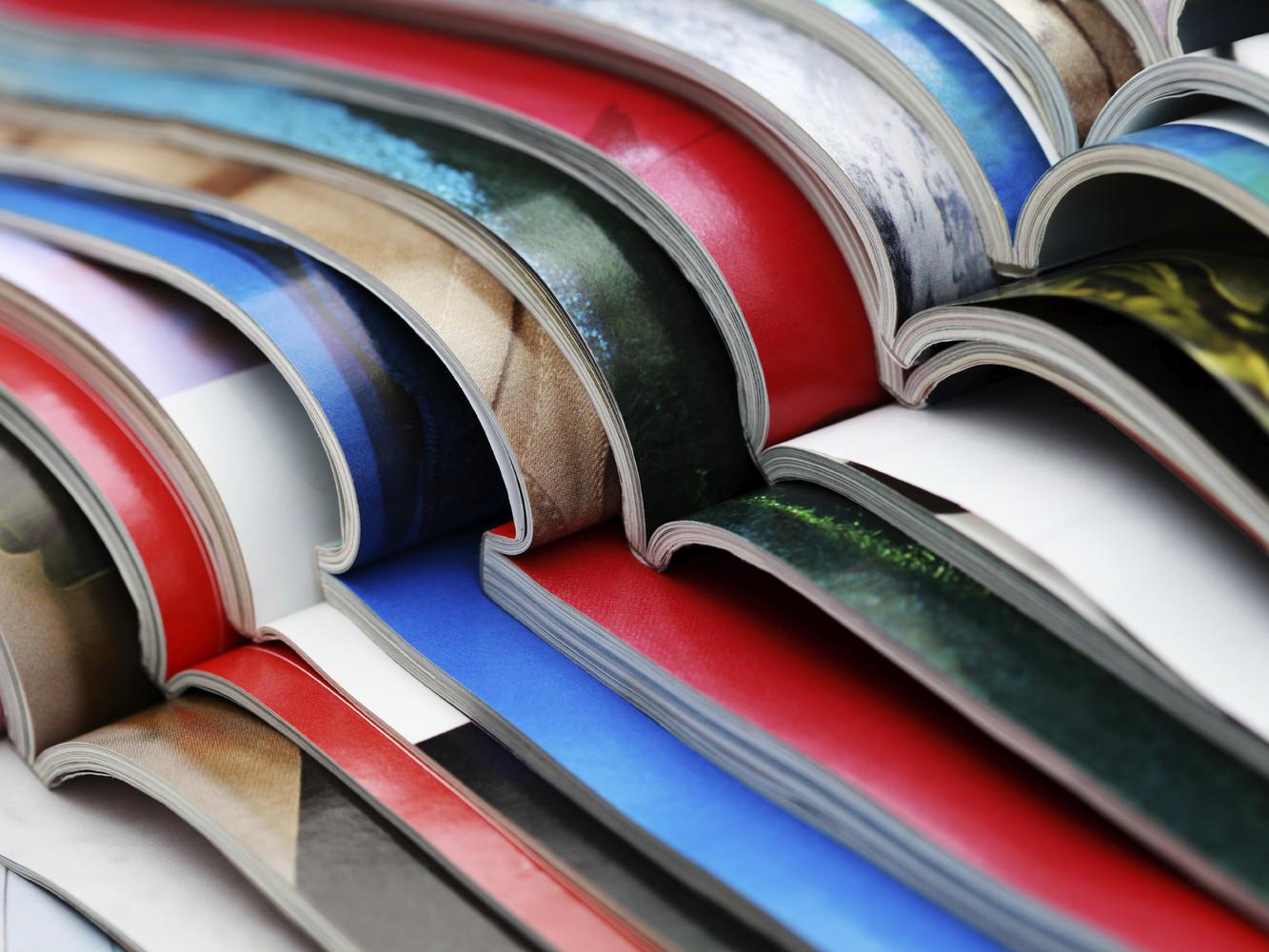This month, Canadian literary journal Descant — which published new work from authors like Margaret Atwood and Isabel Allende — announced it will be closing up shop after 44 years.
"After long and painful negotiations and deliberations for four years," wrote Editor-in-Chief Karen Mulhallen, "we have jointly decided that Descant magazine in its present form is no longer sustainable."
It's the story we've heard time and again over the last decade or so, the story of a good one dying. But literary magazines have an enduring fascination — and the news isn't all bad.
In my early 20s, I was rummaging through the shelves at a local consignment shop when I saw the names Salman Rushdie and Lorrie Moore occupying the same cover. I'd stumbled across a copy of Granta — and the idea that those two could have their work celebrated in a single space made an impression.
From then on I began seeking out more of these compilations — even met and interviewed John Barth years later, while he was on a promotional tour for issue 118 of that same publication. Barth, at the time, was contemplating the end of writing fiction. I remember summoning up the courage to ask him what he thought about the future of reading. "The medium always seems like it's going to die," he said, "but it just never does. It's much too pleasant."
Pleasant — and adaptable. Like novels and story collections, literary magazines have to navigate an increasingly digital environment. And despite the struggles that have plagued print media, there are still magazines that are beating the odds — the bulk of them operating on limited budgets and relying on small but devoted readerships.
There is hope.
For years, we've had BOMB Magazine, McSweeney's, Tin House, Ploughshares, Virginia Quarterly Review, n+1, and more; all have consistently been a source for provocative fiction and social commentary. And now there's a surge of new and noteworthy magazines, bringing a fresh approach, challenging norms and taking risks.
From The White Review, a fantastic quarterly arts journal in print and online, to Electric Literature, which is known for its features, masterful interviews, and brilliant design, there is much to discover. Then there's a personal favorite, Music & Literature — the brave new kid on the block, highlighting exciting writers and musicians we might otherwise never come across. Each issue is a gem, and especially useful for those interested in breaking their parochial American reading habits and looking more globally.
"The support of curious and ambitious readers is the lifeblood of any small magazine," says, Taylor Davis-Van Atta, publisher and editor of Music & Literature. "Especially at times when the availability of external funding for non-commercial projects is extremely limited."
Daniel Medin, co-editor of M&L, adds that while it's impossible to read every book, "a good journal can provide a sense of the landscape and communicate a larger curatorial vision."
Lorin Stein, editor of The Paris Review, knows that all magazines and journals play different roles in literary culture. "The Paris Review," he offers "is known for discovering new writers. It has a professional importance to editors and agents. But our circulation is almost 20,000 — triple what it was ten years ago. So obviously our readers are not in the publishing business, they're just people who like to read and who trust our taste."
Stein says part of that success is a lit mag's prized ability to lose money — because there's no expectation of huge profits, editors can publish the work that matters most to them. "Literature is like the news — what's good isn't always profitable, and vice versa. I think our readers and our donors understand that."
Where other art forms face the constant pressure to reap heaping financial results, literary magazines and journals — although they do need to make money — place more stock in aesthetics and in the exploration of ideas. They are free to focus on the why of things. There is room to question, to prod and push, to aim at a sense of creative liberalism that more mainstream outlets simply cannot replicate.
That many continue to flourish is proof that readers will never grow weary of thinking, and supporting things that matter — and, of course, that nothing will ever trump the wonder of a good story.
Juan Vidal is a writer and critic for NPR Books. He's on Twitter: @itsjuanlove
Copyright 2014 NPR. To see more, visit http://www.npr.org/.
Source: NPR

